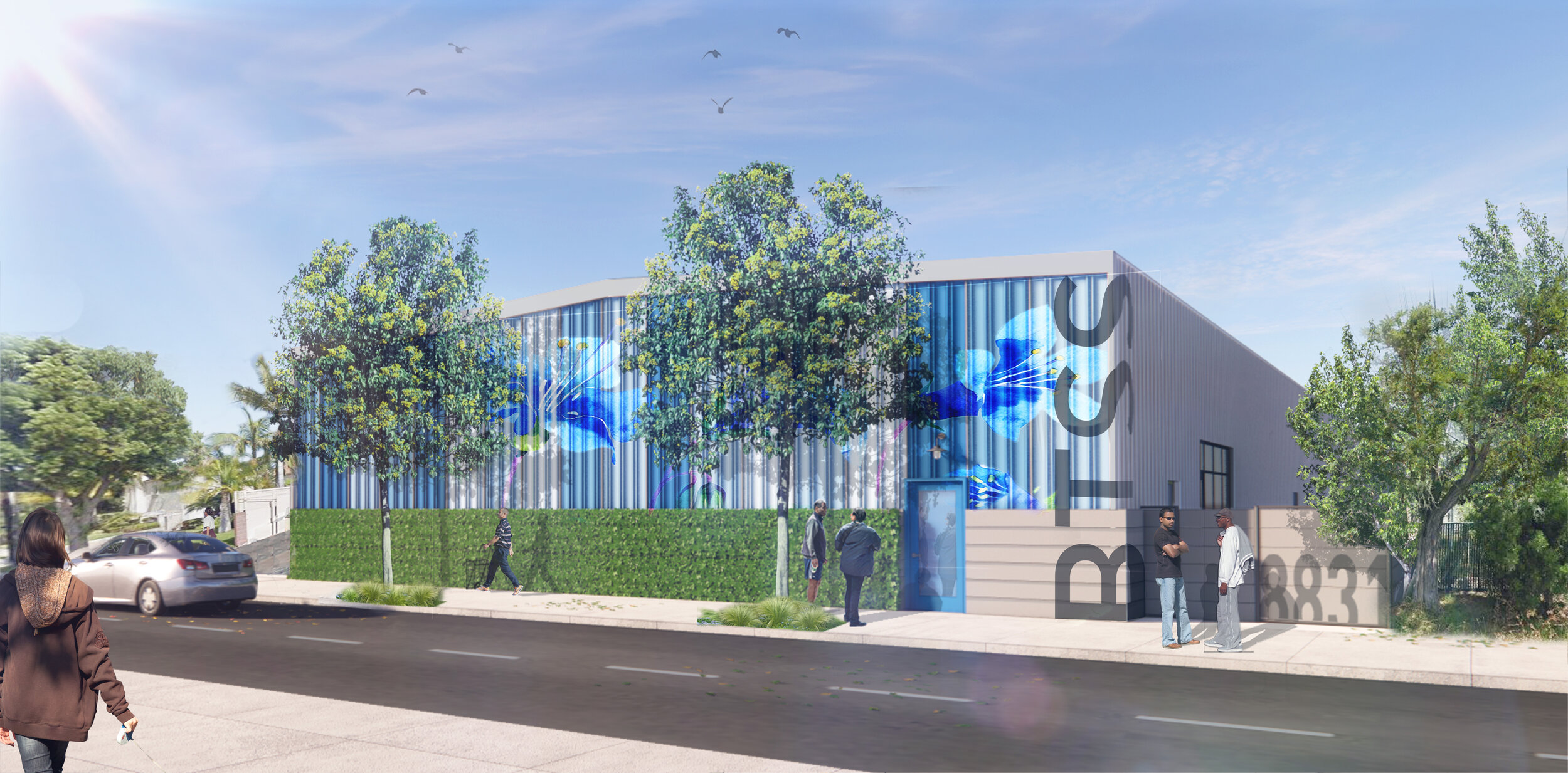The pandemic has exposed and worsened many pre-existing crises, especially affordable housing. Homeless and transitional housing centers in Los Angeles Country can take two years or more to construct, and up to three years for permitting. But last week Bellflower Temporary Shelter opened after just 12 weeks of construction and a total of 5 months of planning, from idea to opening. Built for just $1.9 million, or $150 per square foot, and $38,000 per bed, the cost is also dramatically lower than most homeless shelters.
The project used “self-certification” to speed approvals by making the architect of record (Studio One Eleven) and the contractor (Howard CDM) responsible for all code approvals while working closely with inspectors. Providing social services is Mercy House.
Bellflower City Manager Jeff Stewart said the project was in response to a local survey showing significant resident concern about the homeless issue and several discussions with U.S. District Judge David O. Carter who has been instrumental in creating solutions to the public health crisis of homelessness in Orange County.
“We entered into an agreement with Judge Carter to build this center as quickly as possible,” said Stewart. “The most efficient tool we had to ensure the process moved quickly was to allow Howard CDM and Studio One Eleven to immediately come up with a site plan, allow them to apply for the City’s self-certification program and turn them loose. Through that process, Howard CDM crews were able to execute a design/bid process on the fly, and the City then ensures that the team follows the code from soup to nuts in the field.”
Bellflower Temporary Shelter is one of the fastest-rising, and most cost-efficient homeless shelters in Los Angeles County. In contrast, the 2018 El Pueblo historic district shelter in DTLA – one of the first shelters built under the City of Los Angeles “A Bridge Home” crisis housing program – cost $2.4 million, or $53,300 per bed.
Curbed Los Angeles editor Jenna Chandler further explored the project in this article.

